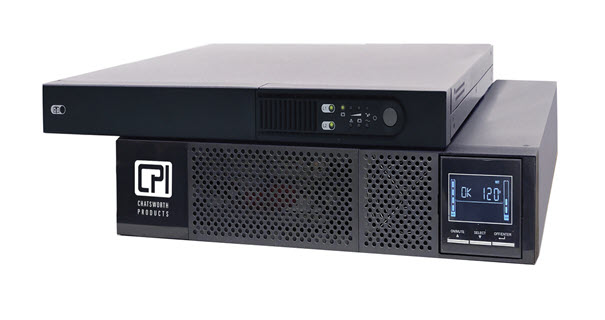Let's be real here. Your friends are probably not jumping up and down, volunteering to go UPS shopping with you. They probably started to tune you out the second you dropped "uninterruptable," and it's not their fault that the power protection solution you've been dreaming about has the same acronym as the United Parcel Service. It's not like there's a reliable, low-voltage outlet mall that we can meander through, gazing at all of the high-performance, incredibly-specific solutions... We're just browsing, thank you!
Fear not. Chatsworth Products has written plenty of educational pieces to help operators like you better understand How to Select an Uninterruptible Power Supply (UPS) solution. Because in this day and age, all we need are internet friends who want to help us internet shop.
Where Do I Start?
Maybe you've been meticulously researching the ins and outs of Uninterruptable Power Supplies for decades. Maybe you fluttered open your eyes this morning and realized you have needed a modern-day power solution all along. Whatever it may be, as you begin researching the various UPS products and solutions available to you in today's market, you should keep these key questions in mind:
- What is the total power capacity (kW) that my facility needs to support?
- NOTE: Most modern day equipment is power factor corrected, making it important for you to compare kW ratings with kVA ratings.
- What’s the input voltage that my facility will need – 120V or 208/240V?
- How long of a runtime does my application require?
- How many outlets does my application require?
After you've gathered your resources and answered these questions thoroughly, you can finally proceed to the more exciting part: Shopping.
What Type of UPS Technology Is Right for Me?
Before you try to answer that, you may want to start by learning about the most common and useful types of UPS technology. Every smart shopper knows that, before you even walk into the store, you need to make an exact list of what you're looking for. There are many types of UPS solutions, so it will be helpful for you to learn what they are, how they work and why they function differently:
- Standby UPS
- Also known as an "offline UPS," this system can handle any AC blackout situation that results in a loss of power.
- Line Interactive UPS
- This type of system functions in all of the same ways as a Standby UPS, but includes Automatic Voltage Regulation, an additional precaution that efficiently minimizes its battery usage during the overvoltage and/or brownout scenarios.
- Double-Conversion Online UPS
- This type of system can perform during all of the scenarios that standby and line-interactive UPS can, with additional coverage including:
- Normal Mode Noise, when high frequency electrical waveforms between the line [L] and neutral [N] are caused by RFI or EMI interference
- Frequency Variation, when a frequency changes from nominal 60Hz or 50Hz
- Switching Transient, when the voltage spikes quickly within a short amount of time
- Harmonic Distortion, when the nominal waveform is distorted by nonlinear loads.
- This type of system can perform during all of the scenarios that standby and line-interactive UPS can, with additional coverage including:
Start exploring your options today with the recently introduced UPS solutions from Chatsworth Products >>

Now you've got a better idea of the variations of UPS systems. That's all, right? My shopping list is complete and I'm ready to call my Accu-Tech Representative immediately? Well, almost my friend. You're going to have to make one more decision.
Which Kind of Battery Is Best for My UPS Application?
The UPS solutions you just learned about typically come in one of two battery configuration types:
- Lead-Acid
- Lead acid batteries provide reliable and cost-effective power protection for servers and network applications within the 800VA – 5000VA range.
- Lithium Ion
- Lithium Ion batteries provide more than twice the life than lead-acid battery solutions, as well as a higher temperature tolerance, longer runtime, and faster recharge.
Depending on the size and goals of your space, you'll want to carefully consider which battery backup option will work best for you. If the shoe fits, wear it. Then, after you've weighed the pros and cons of these basic UPS options, you'll ready to communicate with one of our dedicated Sales Representatives to design your customized UPS solution. We want to help you shop UPS products with knowledge and with purpose: To protect your IT assets and ensure that there's nothing but uptime in your soon-to-be future.
Contact your local Accu-Tech Representative to learn more, or visit our Chatsworth Products Inc. vendor page.


.png?width=58&height=58&name=X_logo_2023_(white).png)
